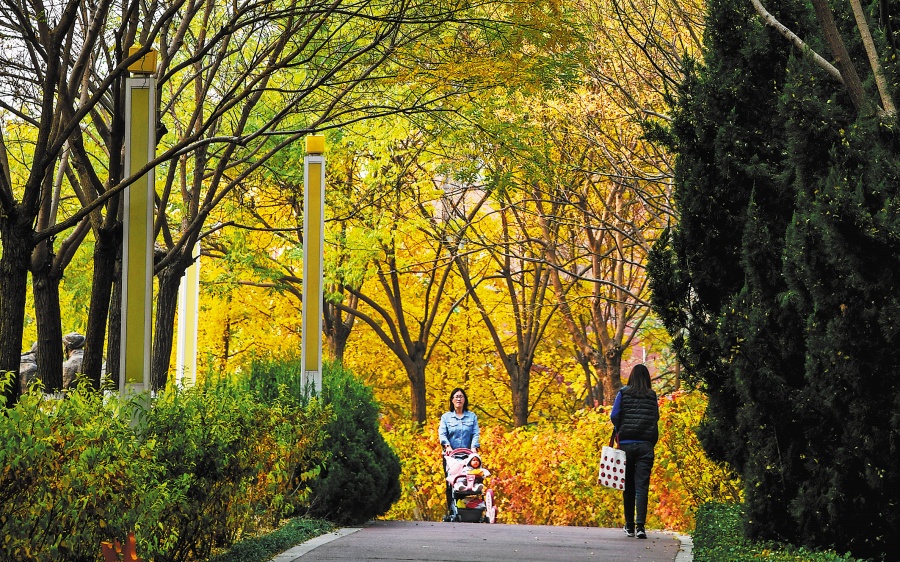Eco-city challenge to inspire innovation
Teams from China and Singapore adapt green technologies to pioneering development area


The main tree species in the eco-city include winter gold trees (Sophora japonica), ash and black locust trees, which not only adapt well to the local climate but also reflect the regional style.
Species such as Platanus orientalis, ginkgo trees and begonias have been introduced to the area.
The city has incorporated ornamental plants to create a diverse and vibrant ecological landscape with distinct layers and notable seasonal changes.
In spring, the bright and beautiful weigela flowers bloom; summer sees the energetic sage in full swing; autumn showcases the exuberant display of seepweed; and in winter, the resilient lonicera maackii thrives.
Currently, greenery in the eco-city has exceeded 50 percent of its area, with 137 plant species.
The excellent ecological environment has attracted numerous wild animals to breed and thrive here, according to the administrative committee.
Surveys indicate that there are 332 animal species in the area, with endangered relict gulls — accounting for about 80 percent of its global population — choosing this area as their wintering and breeding grounds, the administrative committee said.
In addition to natural rehabilitation, the area has seen the country's first zero-carbon building. It has widespread applications in solar energy, geothermal energy and wind power, according to the committee.
yangcheng@chinadaily.com.cn


















